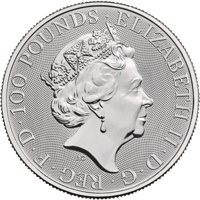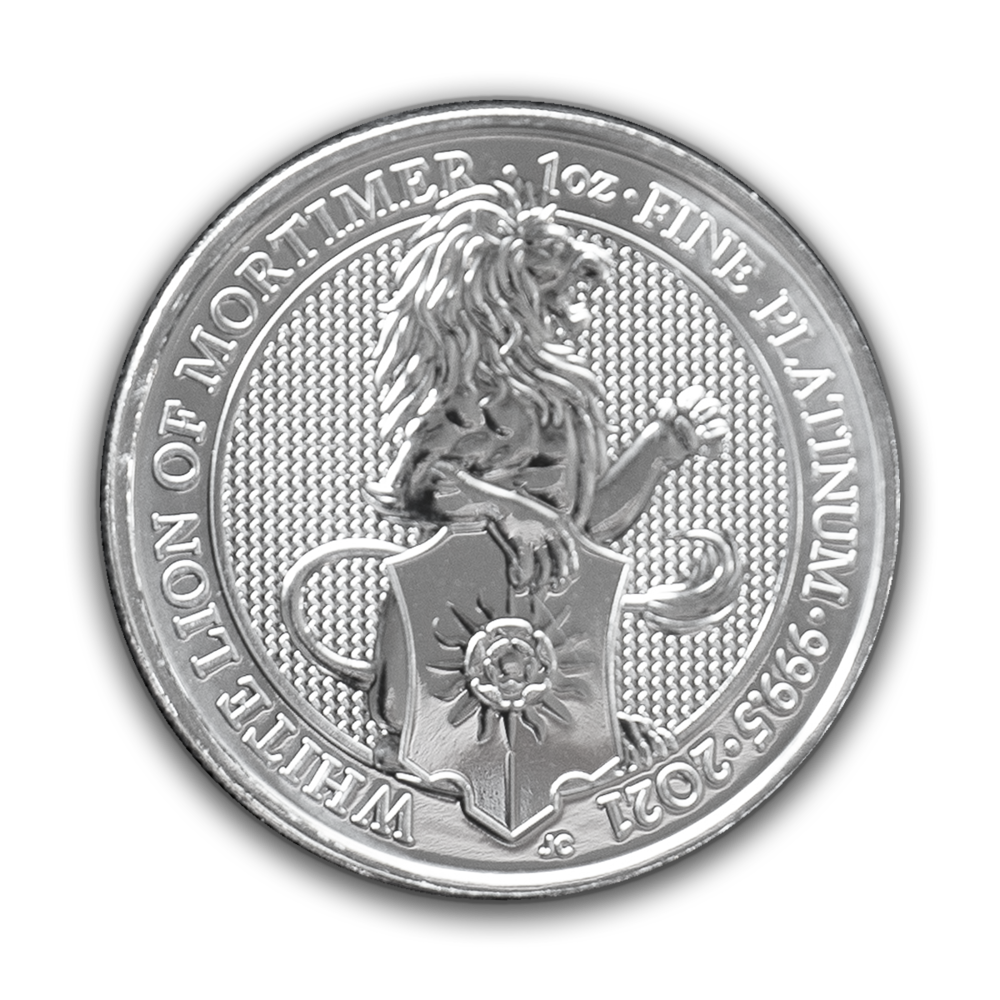Posted on April 14, 2022

Like gold and other precious metals, platinum can have a place in your bullion collection and as a hedge against inflation. Platinum is both denser and rarer than gold, and its price often experiences greater volatility due to its lower liquidity and availability.
Despite being less popular than gold today, platinum can be an excellent choice for individuals who want to diversify their investment in precious metals. Platinum bullion coins are one of the most popular options for investing in this rare metal. If you’re interested in exploring an interesting alternative to gold and silver, you’ll find it helpful to know how to buy platinum bullion coins. Read on for the insider scoop on the best ways to buy your platinum coins…
“Bullion” refers to high-purity physical precious metals, like gold, silver, platinum, and palladium. (Oddly, the word bullion comes from the Old French word bouillon, meaning “to boil.” Apparently, the process of melting and refining precious metals reminded medieval French workers of soup – they must’ve been pretty hungry…)
Today, we use the word “bullion” to refer to physical precious metals whose value is primarily, if not exclusively, derived from their weight and purity of metal, regardless of their shape or size. Coins, bars, and “rounds” made of high-purity precious metals are all considered forms of bullion.
 Platinum is a unique metal because it is scarce, beautiful, and has many industrial applications. Platinum (and its near neighbor on the periodic table of elements, palladium) is well-known for its catalytic properties – in other words, the presence of platinum accelerates some chemical reactions without being altered itself. Platinum is popular as an alternative to white gold in jewelry, offering superior durability that’s rust and tarnish-free.
Platinum is a unique metal because it is scarce, beautiful, and has many industrial applications. Platinum (and its near neighbor on the periodic table of elements, palladium) is well-known for its catalytic properties – in other words, the presence of platinum accelerates some chemical reactions without being altered itself. Platinum is popular as an alternative to white gold in jewelry, offering superior durability that’s rust and tarnish-free.
More importantly, the automotive industry generates enormous demand for platinum, using the metal in catalytic converters. While the automotive manufacturers are the top buyers of platinum, it serves a role in several other industries, including chemicals, electronics, and medical and dental equipment. Platinum’s unreactivity (it’s called a “noble metal” sometimes) has made it an incredibly useful ingredient in dental fillings and medical implants because the human body treats it as an inert material.
As we mentioned above, platinum bullion is available in several forms. So why are coins preferable? Many choose platinum coins over other types of platinum bullion because coins are generally easier to barter or sell. Coins produced by globally-respected and recognized mints, like the U.S. Mint or the Royal Canadian Mint, are easily recognized and more easily valued than bars or rounds. Because the platinum market is significantly smaller than the market for gold or silver, the metal can be less liquid – in other words, more difficult to buy or sell. In addition, government-minted platinum coins come with the quality guarantee of a government mint standing behind them, making them a better option in virtually every situation. And unlike bullion bars, platinum bullion coins can be breathtaking works of art.
America's most popular platinum coins include American eagle bullion coins, the Canadian maple leafs, Britannias, Australian kangaroos, and the British Queen’s beasts collection. These coins are among the most desirable by investors because they are widely recognized, giving them liquidity and some level of price stability.
By far, the most common platinum coin weight is 1 oz. Though some mints produce other weights of platinum coins (such as 1 g, 1/10 oz, 1/4 oz, and 1/2 oz), these are relatively rare. When they are available, lighter-weight or “fractional” platinum coins command a higher premium over spot price than larger coins, simply due to costs.
It takes a mint about the same amount of work to produce a 1/10 oz coin as to make a 1 oz coin, so their cost per coin is relatively fixed. As the metal value of a coin goes down, the mint’s fixed cost represents a larger and larger proportion of the coin’s overall cost.
Modern platinum bullion coins consist of high-purity platinum, most often 0.9995 pure.
The best way to buy platinum bullion coins is from a reputable online bullion dealer. Online dealers like BullionMax have low overhead costs (no storefront!) and receive wholesaler pricing by buying direct from major mints – most of which simply don’t sell bullion direct to the public.
We pass these savings on to you. Furthermore, since we don’t have to maintain a storefront, we have much more shelf space than the average coin shop. That means we can maintain a vast selection of inventory and still offer fast shipping. When we say “reputable,” we mean you should choose an online dealer with great reviews.
Another option for purchasing platinum bullion coins on the web is via coin auctions on sites like eBay or directly from private sellers. However, both involve the risk of fraud and simply receiving what you paid for – bait-and-switch is a classic scam. Who wants to go through that hassle?
For face-to-face transactions, you can always buy platinum coins in-person at brick-and-mortar coin stores or coin shows. But your purchasing options will be limited to what the shop or dealer has in stock. And, prices will reflect a premium since physical locations have much more overhead costs than online bullion dealers. Even coin shows charge pretty steep fees for vendors to set up a table – and they have to make that money back somehow.
Choosing how to buy platinum bullion coins is a matter of preference. However, you should consider the selection and availability of coins, pricing, convenience, and a seller’s reputation.
Most of the time, online dealers have a better selection of platinum coins available and more competitive pricing than coin shops. Online dealers also offer the convenience of being open for business 24/7 and shipping the product directly to you. The downside of an online purchase is that you don’t get to inspect the item first-hand before making the purchase.
Other important considerations include shipping options, packaging, insurance, and storage when buying platinum bullion coins.
Be sure to check the shipping options and whether or not free shipping applies to your order. Before buying, you should also verify that the seller will ship your coins in protective, plain packaging.
Insurance is another critical consideration that platinum owners should take into account. Platinum bullion coins should always be insured during shipping and for as long as you own them.
Finally, anyone who buys platinum coins should have appropriate accommodations for safe storage, such as a home safe, bank vault, or precious metals depository.
Following these five simple steps will help you make informed decisions when buying platinum bullion coins.